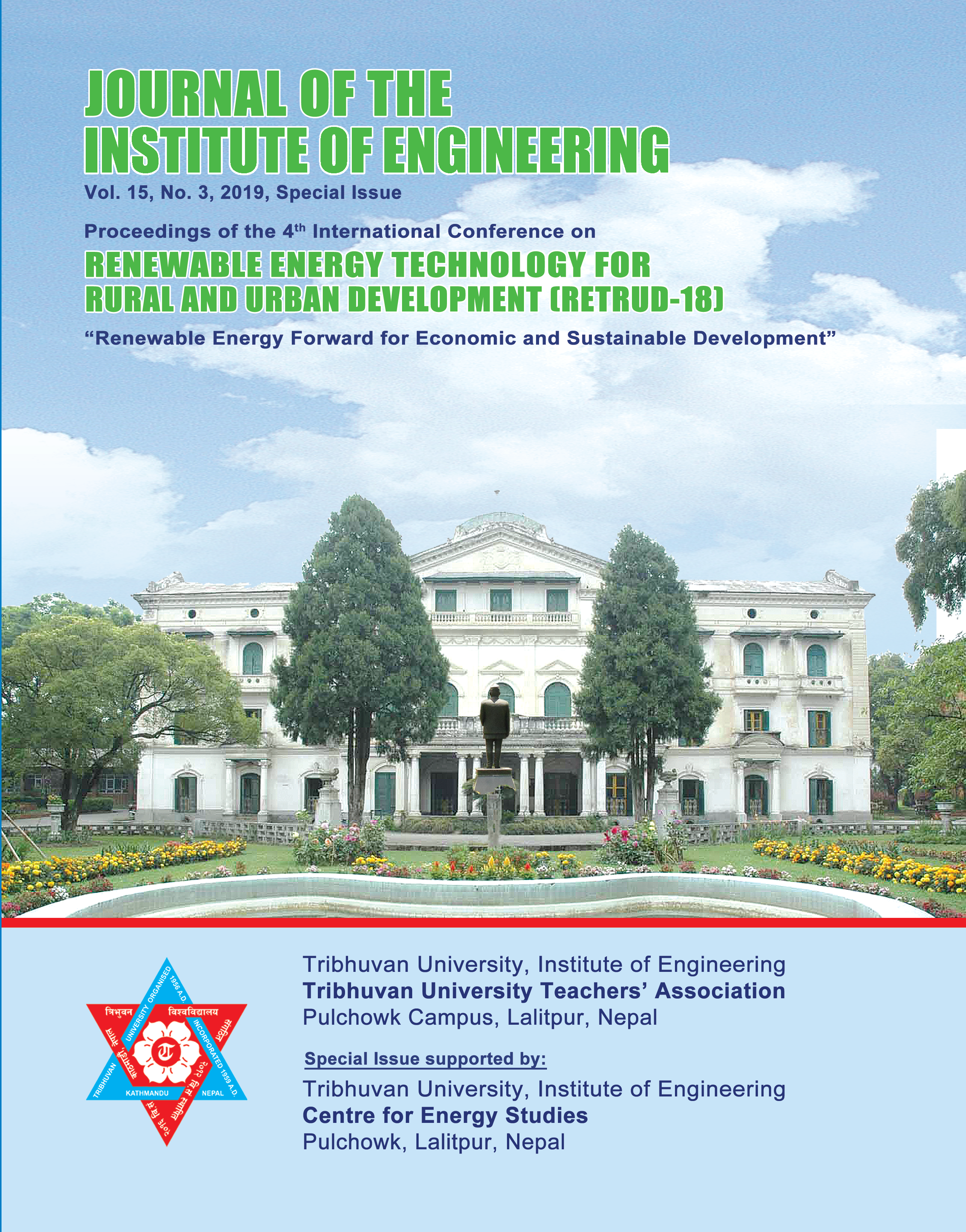Assessment of Energy Use on Urban Kathmandu from Energy Cultures Framework in Gender Perspective
DOI:
https://doi.org/10.3126/jie.v15i3.32211Keywords:
Sustainability, Energy Efficiency, Energy Consumption, Energy Cultures, Gender LensAbstract
The urban household has a high potential for energy saving to reduce carbon emission; however, it has been scant attention in Nepalese energy policy. Though sustainable development has set 2030 goals to achieve high impact on energy with a focus on women’ role, Nepal is still lagged for effective participating women properly in the energy sector. Urban women have a triple role with significant responsibility for household chores, and efficient cooking is one of pertinent attitudes to reduce energy in Kathmandu. Household energy is highly influenced by human behavior, energy culture, and practices, more significant role for shifting technology, that has less consideration in the policy. This paper aims to assess the energy practices identifying trade-offs of an energy transition to cleaner technology from the questionnaire survey, observation, interviews, and quantitative analysis in terms of a gender perspective. The analysis is based on energy cultures framework in gender perspective with primary attributes of cognitive norms, energy practices, and material culture to understand urban Kathmandu neighborhood. The field study showed that urban households are suffered from energy inaccessibility, inequality, and insecurity resulting in fuel stacking, socio-economic disparity, and environmental impacts. In conclusion, the energy-saving and reduced carbon emissions can be solved through prioritizing women’s role as a change of agent with active participation, incentives, two-way communication, and awareness to improve the situation.
Downloads
Downloads
Published
How to Cite
Issue
Section
License
The Copyright is held by Journal of the Institute of Engineering, IOE, TU




